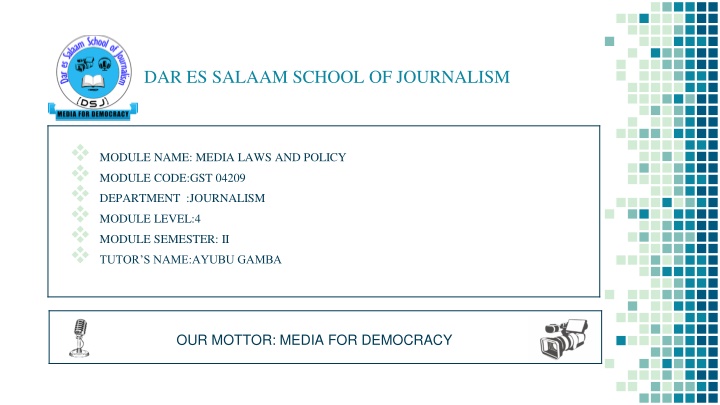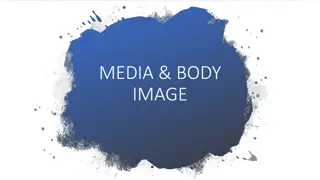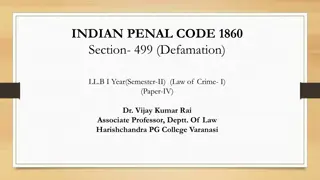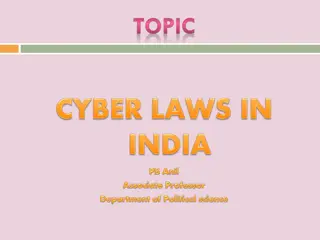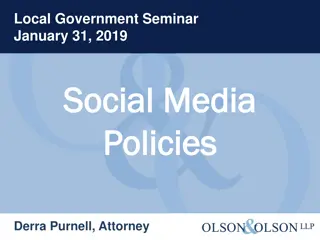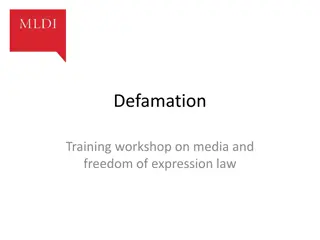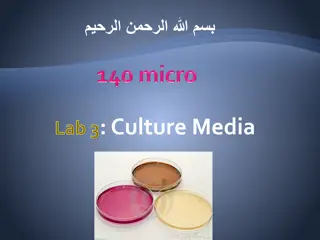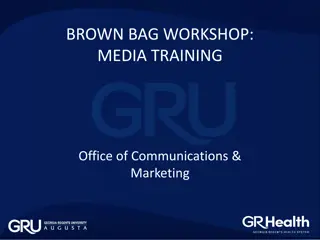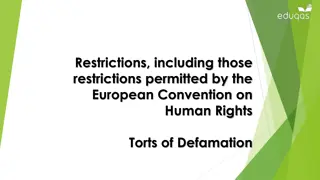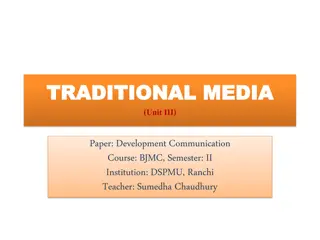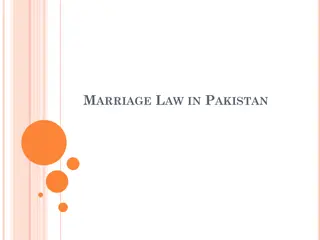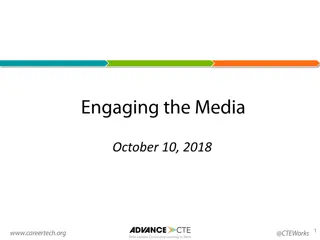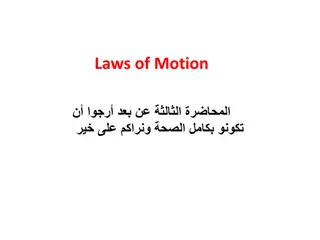Defamation Laws in Media
Defamation laws play a crucial role in regulating the media industry. This content delves into the types of defamatory statements, elements of defamation, defenses available, and the significance of truthful reporting in media.
Download Presentation

Please find below an Image/Link to download the presentation.
The content on the website is provided AS IS for your information and personal use only. It may not be sold, licensed, or shared on other websites without obtaining consent from the author.If you encounter any issues during the download, it is possible that the publisher has removed the file from their server.
You are allowed to download the files provided on this website for personal or commercial use, subject to the condition that they are used lawfully. All files are the property of their respective owners.
The content on the website is provided AS IS for your information and personal use only. It may not be sold, licensed, or shared on other websites without obtaining consent from the author.
E N D
Presentation Transcript
DAR ES SALAAM SCHOOL OF JOURNALISM MODULE NAME: MEDIA LAWS AND POLICY MODULE CODE:GST 04209 DEPARTMENT :JOURNALISM MODULE LEVEL:4 MODULE SEMESTER: II TUTOR S NAME:AYUBU GAMBA OUR MOTTOR: MEDIA FOR DEMOCRACY
TOPIC 4:LAW OF DEFAMATION What is Defamation Refer to un truth statement that tend to lower an individual s esteem or status by exposing them to public ridicule or hatred or by causing them to be shunned or avoided. Types of defamatory statements are 1. Libel defamation Is defamatory type publishing though printing like newspaper, magazine 2.Slander defamation Is the type of defamatory statement that came from the words of mouth or gesture. 2
ELEMENTS OF DEFAMATION The statement should be false; the words published should be wrong information as far as the injured person is concerned. The duty to prove falsity od the words lies with the plaintiff. The statement should concern the injured person; the words should be directed towards the injured person The statement should be defamatory; the words should expose the person to hatred, ridicule or contempt, lowers him in esteem of his fellows, causes him to be shunned. The statement should have been published; the defamatory statement should came to the knowledge of the third part. The third party who had knowledge of the information should actually be made to think less of that person.
Defences of defamation truth Once it proved that the statement is true an action for defamation will fail Fair comment or criticism Fair comment protects statements which carry opinion of the publisher. The following should however be established; i) The statement should base on factual information ii) Should have been made in good faith and iii) The information should concern a matter of public interest Absolute Privilege Some statement are protected by law. The matters protected by absolute privilege are provided in the law. The Media service Act 2016 for examples cites matters published by the President, the Government or the National Assembly in any official document.
(continued...) Qualified or conditional privilege Qualified privilege protects the reporter in number of situations; i) Where the publisher acted in good faith ii) Where the publisher had legal, moral or social duty to publish and iii) The matter being published is of genuine public concern Reasonable Publication Reasonable publication as a defense against defamation applies where; i) The publisher was unaware of the falsity of the matter ii) The publisher did not publisher did not publish recklessly and iii) Publication was reasonable Innocent publication Individuals who publish or contribute to the dissemination of defamatory matters unknowingly should not be liable of defamation. Such people include newspapers vendors and internet services providers(ISP)
REMEDIES OF DEFAMATION damages Damages mean compensation in monetary terms. The amount of damages awardable should be proportional to the injury suffered. Determination of amount payable damages according to the Court of Appel of Tanzania in Tanganyika Standard (N) Ltd.
SEDITION i. Where the offence requires establishment and proof apart from actual act, intent to incite violence ii. Where the offence takes incitement to violence and the breach of the peace, and iii.Where the offence is interpreted to encompass only likelihood that the libel will lead to contempt of government and excite ill will among the population. Sedition takes three forms The rationale behind sedition is protection of public order. It is used to discourage criticism of the government. Sedition Intention A person cab be charged with sedition if intention to commit the offence is established. Once seditions intention is established truth is no longer a defense. There is a catch, however. If truth is not a defense then undemocratic leaders would use sedition to stifle legitimate criticism. Defenses for sedition Several grounds could be established as defense against allegations of seditious libel: i. Showing that the government has been misled or mistaken in any of its measures, ii. Pointing out errors or defects in the government of constitution or in the legislation or in the administration of justice.
(continued...) iii. Pointing out any matter which are producing or have a tendency to produce feelings of ill-will and enmity among any body or group of persons
Full name: AYUBU GAMBA. Department: JOURNALISM. Email Address:agamba133@gmail.com Phone number:0769055073 CONTACT TUTOR IN CHARGE
